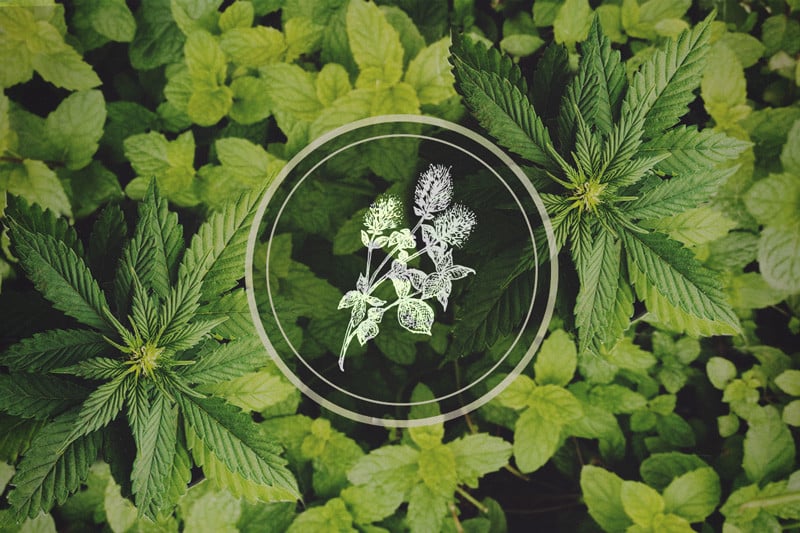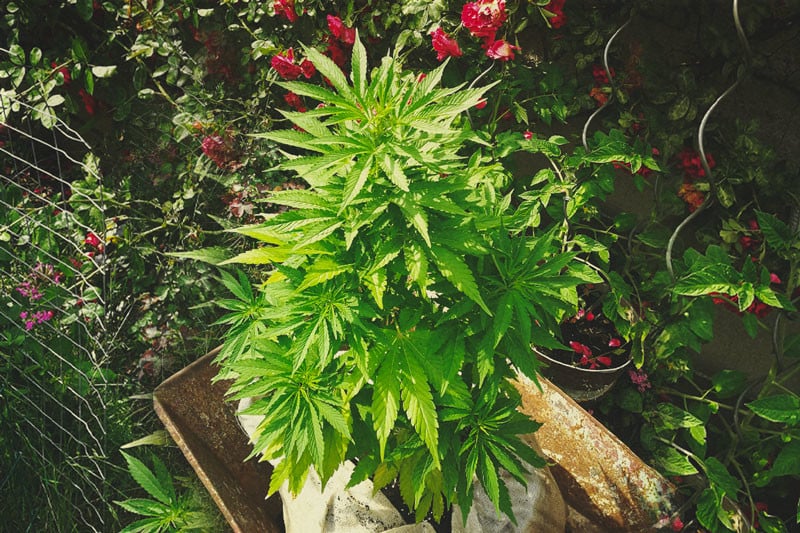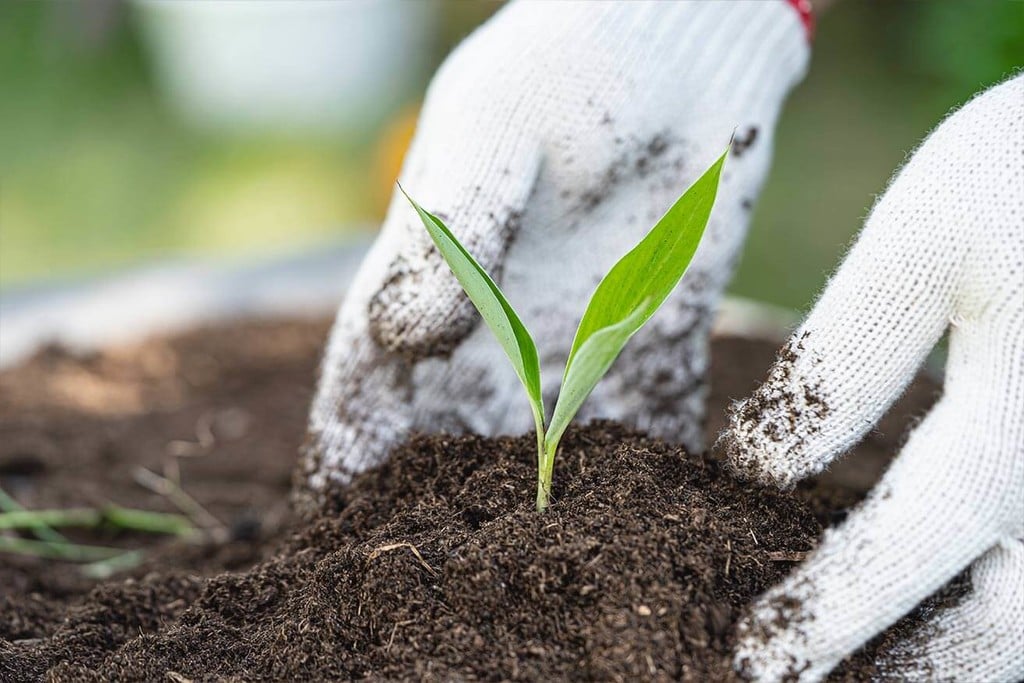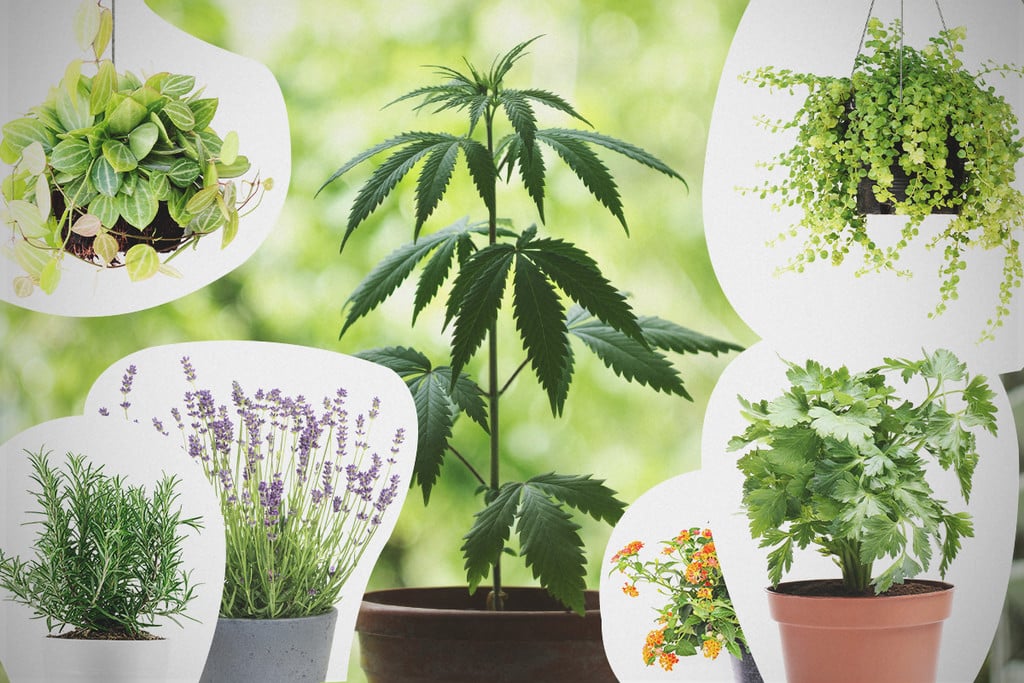.
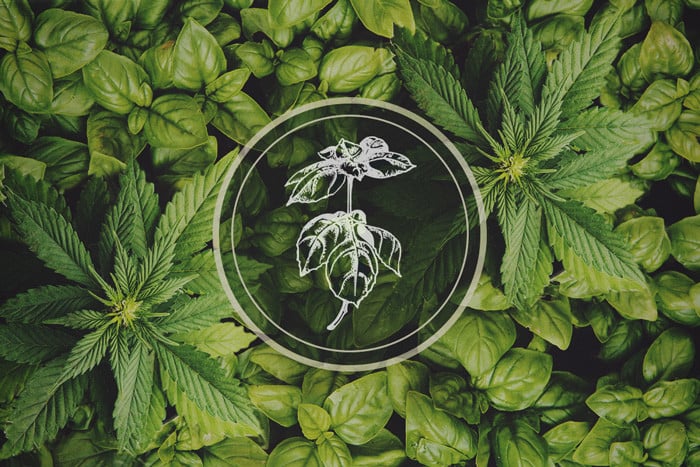
Plants That Repel Aphids: Basil - The Cannabis Companion Plant
Basil doesn't just smell and taste divine; this culinary herb plays the important role of a companion plant in a biodiverse garden. Thanks to its potent chemical profile, it'll keep aphids away while attracting beneficial critters. Some studies also suggest that this flavorful plant could boost the terpene production of your weed flowers.
Contents:
It turns out that the humble basil plant can help to deter some key cannabis pests from settling into your garden. Plus, this culinary herb might even help to boost the resin production of weed flowers. Find out why you need to recruit this pest-thwarting companion plant this growing season.
What Is Basil?
From cheesy pizzas and pasta sauces to salads and soups, basil leaves add sweet and mildly spicy notes to a long list of dishes. But basil serves as much more than just a great green garnish. This annual herb has a long and impressive history of use, works as an effective companion plant in the garden, and exhibits holistic potential that researchers are only just tapping into.
Basil, known by the botanical Latin binomial Ocimum basilicum, belongs to the Lamiaceae family along with its relatives mint, catnip, lavender, and thyme. There are many types of basil available. Although they all technically belong to the same species, different cultivars offer a diversity of appearances and flavors. These include:
- Anise basil
- Dark opal basil
- Purple basil
- Thai basil
- Cinnamon basil
Humans have a long history with basil. Although native to Central Africa and Southeast Asia, where it grows as a perennial/biennial plant, it now grows in gardens and windowsills[5] all over the world. The ancient Greeks and Romans used the herb during religious ceremonies, and Europeans employed the plant for its purported therapeutic properties during the Middle Ages.
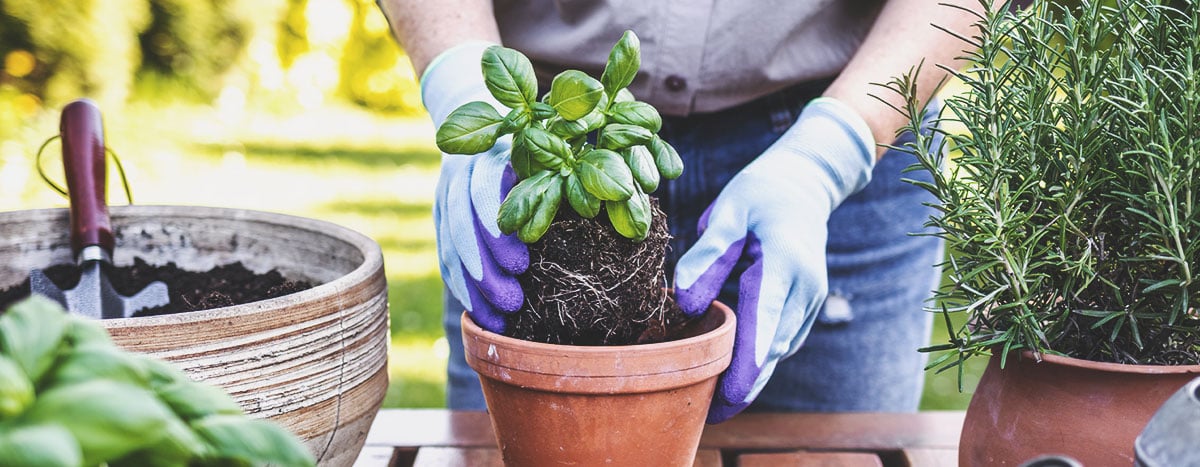
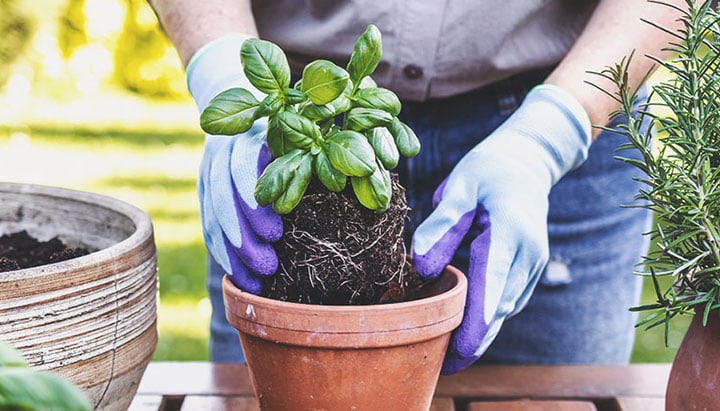
Does Basil Have Terpenes?
Yes. Most plants produce a suite of terpene molecules[6] that display various physiological functions. Classified as secondary metabolites, these molecules don’t contribute to development and reproduction, but they do help to keep plants alive and well. Some of the chief roles of these volatile hydrocarbons include:
• Communication: This might sound weird, but plants communicate![7] Unlike us, they don’t arrange a time to meet up for a natter in the local coffee store. Instead, they use terpenes as chemical signals, sending them out into the environment to alert other plants.
• Attraction: Bright colors aren’t the only thing about plants that attract beneficial insects. Basil uses its pungent terpenes[9] to draw in a range of beneficial critters, including pollinators.
• Stress tolerance: Terpenes also help to reduce the impact of environmental stress in basil plants. They ramp up the production of these molecules during periods of drought and intense heat.
• Defense: Terpenes also help to deter pest[8] insects by inhibiting their ability to feed and reproduce.
Interestingly, basil produces a range of terpenes[10] that are also found within the cannabis plant, including:
- Eucalyptol
- Linalool
- Limonene
- Caryophyllene
What Are the Benefits of Basil in Your Cannabis Garden?
Once you have several basil plants established in your cannabis garden, you’ll reap a whole host of benefits. Check out the biggest bonuses of basil below.
Aphid Pest Control
Are you looking for plants that repel aphids? Well, you just found one! These pests are notorious among cannabis growers. Despite their short life cycle, their ability to rapidly reproduce means that they can overrun entire plants in a brief window of time. They might seem small and harmless, but these pests use their sharp mouthparts to penetrate plant tissue and suck out the sap within. Not only does this deplete plants of resources, but it also predisposes them to fungal infections.
Basil can help to keep these six-legged rascals away from your cannabis plants[11] through different means. First, their powerful terpenes help to attract predatory insects, such as ladybugs, that hunt and chow down on aphids.
Second, the pungency of the terpenes themselves also drives some kinds of aphids away. Remember that plants use these compounds as a form of chemical defense. As one of the most aromatic plants in any garden, basil churns out plenty of insect-repelling terpenes. Overall, basil makes a stellar companion plant for cannabis.
Works Well With Hydroponics
Do you prefer growing hydroponically instead of getting your hands dirty in the soil? Well, basil performs great in this setting, too. Basil makes a great companion plant[12] for hydroponic cannabis for the following reasons:
• Pest control: As you read above, basil will help to keep pests away from the other plants within your hydroponic system, whether you're growing indoors within a grow tent or out in the garden.
• It’ll slot right in: If you’re using growing trays that hold multiple net cups, you can simply slot basil plants in between your weed plants, without worrying about spacing and overcrowding.
• Big yields: Basil grows bigger and faster in hydroponic systems. As well as keeping your cannabis plants safe by deterring aphids, you’ll end up with plenty of fresh leaves ready to top pizzas and spice up pasta sauces.
• Space-efficient: Basil grows bigger in a hydro setup, but it won’t grow to the unmanageable size of certain other companion plants. If your specimens start to get a bit too tall, just top them like you would your weed plants.
Possible Cannabis Resin Increase
Some cannabis growers claim that basil improves the resin production of their weed flowers. We get it, this sounds like some top-tier bro science. However, early research shows that these anecdotes have some degree of scientific grounding.
You see, several studies have demonstrated that plants grown in close proximity are able to modulate each other’s phytochemical profiles and growth. The term “induced systemic resistance” describes how plants can alter the chemical production of their neighbors using chemicals of their own.
For example, a study[1] published in the American Journal of Plant Sciences found that basil companion planting managed to change the levels of secondary metabolites and free amino acids in tomato plants. Terpenes also fall into the category of secondary metabolites, and they make up a large portion of the resin found on cannabis flowers. Therefore, it makes sense that basil could boost the resin production of nearby weed flowers. However, more studies are required to clarify this.
Cooking and Well-Being
By choosing basil as a companion plant, you’ll have a consistent supply of leaves to use throughout the growing season. Each time you harvest, you’ll have plenty of plant material to add to the following recipes:
- Tomato and basil soup
- Pesto
- Risotto
- Garlic and basil ciabatta
- Basil bean mash
- Salad
- Spaghetti
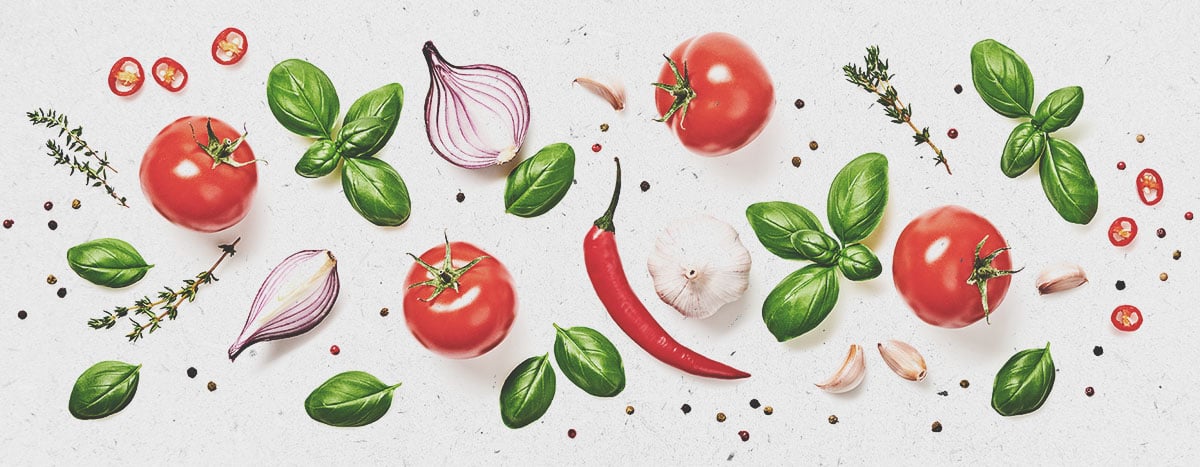
On top of these culinary delights, lots of people also use basil as a health food. Ongoing studies are testing basil constituents for their medicinal potential[13]. Some research efforts are assessing the following effects:
• Anti-inflammatory: Researchers from Brazil looked to determine the anti-inflammatory[2] potential of basil extracts when applied to human leukocytes.
• Heart health: A study[3] published in the Journal of Food Science assessed the effects of inhaled low-dose basil essential oil on cardiovascular health markers in rats.
• Brain function: Studies[4] suggest that basil might help to boost memory retention and retrieval thanks to the antioxidant action of its flavonoids, tannins, and terpenoids.
How to Grow Basil in Your Garden
You can start off basil seeds indoors during February, and raise them under grow lights or on a windowsill that receives a good amount of sun. Scatter some seeds onto a seedling soil mix and cover them with a thin layer of vermiculite.
As a heat-loving crop, you shouldn’t transplant basil out into the garden until the risk of frost has passed. Select a sunny spot with well-draining soil and space plants 8–10cm apart.
Basil plants appreciate moisture, so make sure to water them deeply around once per week (more often during heatwaves) to stop their roots from drying out. Unlike other leafy plants, basil doesn't need much in the way of nutrients. They respond well to a light seaweed solution or worm-casting tea applied once per month.
To keep your plants productive throughout the growing season, top them while they’re young. Continually harvest leaves to encourage your plants to form bushy structures.
What Else Is a Good Companion Plant for Basil?
Nature loves diversity, so don’t limit your companion planting efforts to basil. Growing numerous plants in close proximity will create a polyculture that enhances the soil health and biodiversity in your garden. Overall, polycultures of companion plants help to:
- Increase yields
- Protect against pests and diseases
- Create a habitat for beneficial microbes
- Foster a healthy soil food web
- Shade the soil
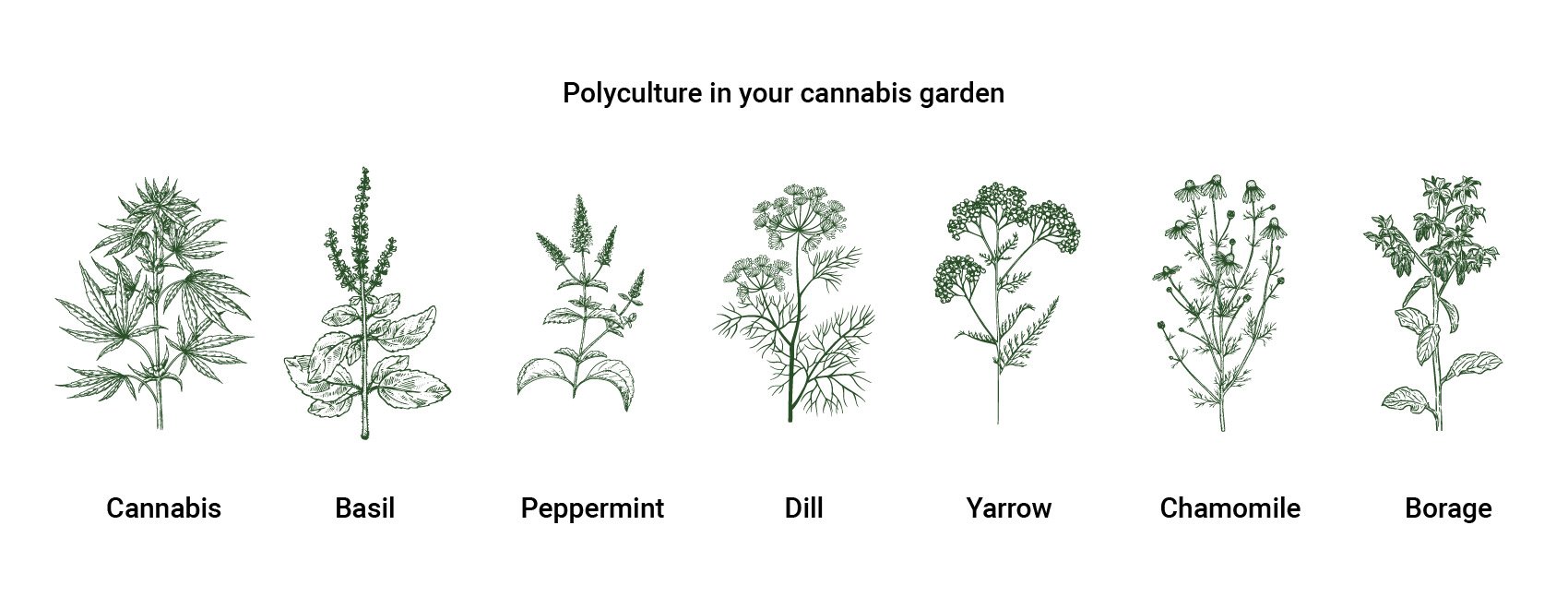
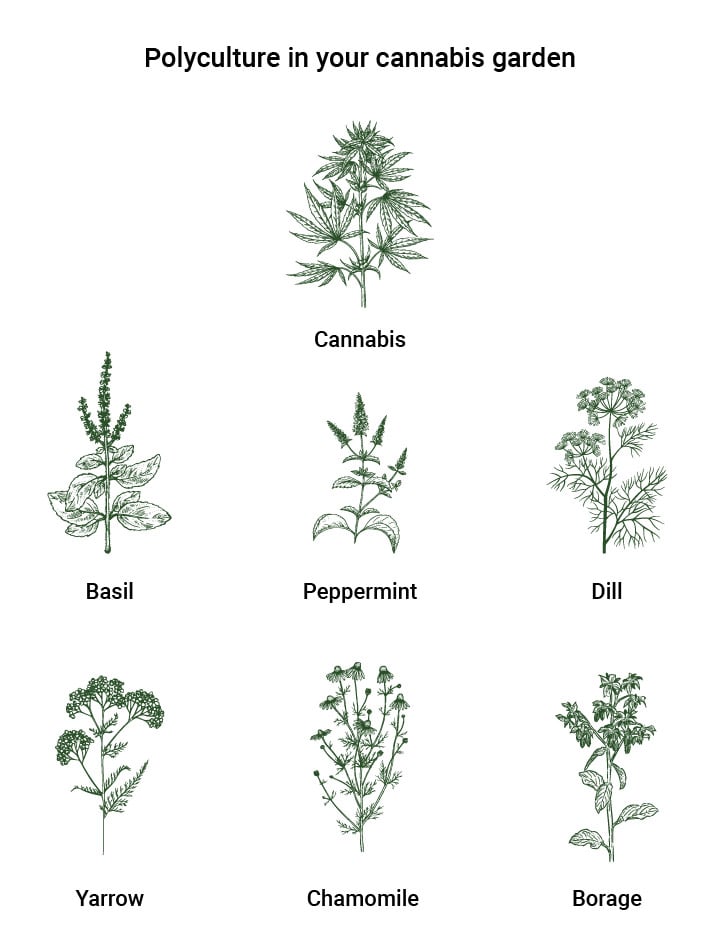
You have a whole host of species to choose from when looking to create a polyculture in your cannabis garden. Some of the best options include:
- Peppermint
- Dill
- Yarrow
- Chamomile
- Borage
Can You Accidentally Breed Basil With Cannabis?
No. You don’t have to worry about ending up with some weird basil/cannabis hybrid when you grow these plants together. Cannabis and basil and two completely different species, and are therefore unable to fertilise each other. Basil plants aren’t a threat to your prized sinsemilla!
Why Basil Is a Good Companion Plant for Cannabis
Basil serves as a key plant ally in any cannabis garden. This culinary powerhouse helps to repel aphids and attract beneficial insects into the growing space. Some very early research also suggests that chemicals found in basil might encourage other plants in close proximity to boost terpene production, which could translate into more resinous weed flowers! Of course, having a bunch of basil in the garden will also supply you with tasty leaves all season long.
- SCIRP Open Access https://www.scirp.org
- SciELO - Brasil - Evaluation of basil extract (Ocimum basilicum L.) on oxidative, anti-genotoxic and anti-inflammatory effects in human leukocytes cell cultures exposed to challenging agents Evaluation of basil extract (Ocimum basilicum L.) on oxidative, anti-genotoxic and anti-inflammatory effects in human leukocytes cell cultures exposed to challenging agents https://www.scielo.br
- Inhalation of low-dose basil (Ocimum basilicum) essential oil improved cardiovascular health https://ift.onlinelibrary.wiley.com
- The effects of green Ocimum basilicum hydroalcoholic extract on retention and retrieval of memory in mice - PMC https://www.ncbi.nlm.nih.gov
- https://www.mdpi.com/2223-7747/11/14/1896
- https://academic.oup.com/plphys/article/136/3/3724/6112502
- https://onlinelibrary.wiley.com/doi/10.1111/tpj.15453
- https://www.mdpi.com/1422-0067/22/11/5710
- https://trace.tennessee.edu/utk_graddiss/8581/
- https://www.sciencedirect.com/science/article/abs/pii/S0166526X20300374
- https://www.mdpi.com/2075-4450/13/6/552
- https://www.tandfonline.com/doi/full/10.1080/01140671.2016.1259642
- https://doi.org/10.1080/10942912.2020.1828456


























